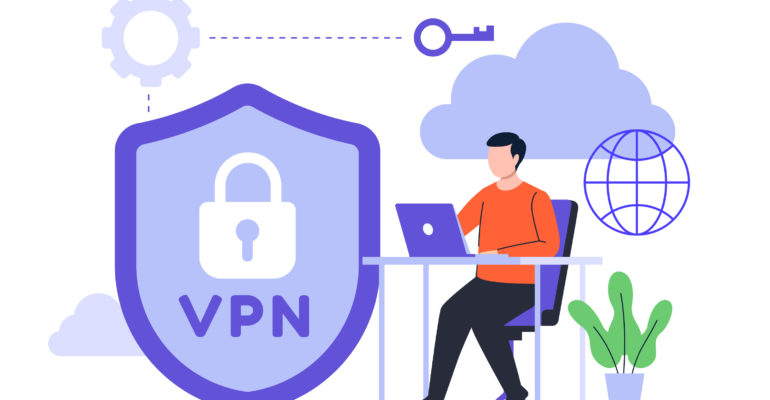A VPN is a virtual private network that allows users to connect to a remote network over the internet. It creates an encrypted tunnel between your computer and the remote network, which prevents anyone from seeing what you are doing online.
A VPN can be used for many purposes, such as accessing geo-restricted content, protecting your privacy, or bypassing censorship.
A VPN is also useful for people who want to access their work from home or abroad without having to worry about their ISP throttling their connection speed.
What Does VPN Stand For?
VPN stands for Virtual Private Network. It is a private network that uses encryption to secure data and protect against cyber threats.
Recap – A VPN is an essential tool for securing your personal data and protecting your privacy online.
How Does A VPN Work?
A VPN is a virtual private network that allows you to connect to a remote server. It creates an encrypted tunnel between your computer and the remote server, which makes it impossible for anyone to see what you are doing online.
A VPN can be used for many purposes, such as accessing geo-restricted content from other countries or using it as a secure connection when connecting to public Wi-Fi hotspots.
A VPN is also useful for those who want to protect their privacy online.
Do I Need A VPN?
VPNs are a great way to protect your privacy and security online. They can also help you access geo-restricted content.
A VPN is a virtual private network that encrypts your internet connection and routes it through an intermediary server in another country. This means that the data you send and receive is encrypted, which prevents anyone from snooping on your activity.
A VPN can also help you access geo-restricted content, such as Netflix or Hulu outside of the US. Users in Ireland and other locations outside of the United States have a different library of films and TV shows to choose from when using Netflix.
Using a VPN can hide your IP and allow you see access the US version of Netflix.
Why Do Some Internet Users Hide Their IP address?
Your IP address is a unique identifier that can be used to identify you online. It is important to hide your IP address because it can be used by hackers and spammers to track your computer or device.
IP addresses are usually sent in the form of packets over a network connection, and they are not visible to anyone outside of the connection. However, hackers and spammers can use tools like packet sniffers or network scanners to capture these packets and get your IP address.
There are many reasons why you should hide your IP address. Here are some of them:
– You don’t want people spying on you
– You don’t want advertisers targeting you
– You don’t want people tracking you with cookies
VPN’s Allow Access To Blocked Websites
VPNs help you to access blocked websites. They are mostly used for educational purposes, as well as in countries with censorship restrictions.
It is a controversial topic. With the advent of technology, many countries are now censoring the news to reduce its negative impact on society. The benefits of censorship are disputed, while its drawbacks are more apparent.
By using a VPN, residents in countries where the government censors the free media can access websites because they are masking their IP.
VPN’s Can Prevent Price Discrimination
Price discrimination happens when eCommerce sites offer different prices to different people based on their perceived ability to pay.
Online retailers use a variety of criteria to calculate the price of an item for any given viewer — device type along with demographic information such as your real-world location.
Airlines are frequently accused of price discrimination, with flight prices changing depending on when you buy, where you are, and other factors. You can counteract location-based price discrimination by using a virtual private network to give yourself an IP address in another part of the world.
Why Is Online Privacy So Important?
The internet is expanding exponentially. As more people start using smart devices, they risk exposing intimate personal data online. And with ISPs tracking, storing, and selling the browsing history, habits, and behaviour of their customers, it’s essential to lock down your private data.
Your personal information should be just that — personal. Without privacy protections, you may be exposing yourself to identity theft and other cybercrimes, as well as tracking by advertisers, your ISP, and your government.
Are VPNs free? And are free VPNs safe?
The answer is, it depends. Free VPNs exist, but they’re usually far less secure than leading premium VPN services. A free VPN service may replace subscription fees by showing you ads or by collecting and selling your personal data.
How do I choose a VPN?
There are many factors that you need to consider when choosing a VPN service. Some of them are security and privacy, location, protocols and encryption, pricing plans and yearly plans.
When choosing a VPN service for yourself or your company, it is important to find one that offers the features that you need without significantly impacting your budget.
Make sure you research thoroughly and check for client reviews before purchasing and downloading anything onto your computer.


